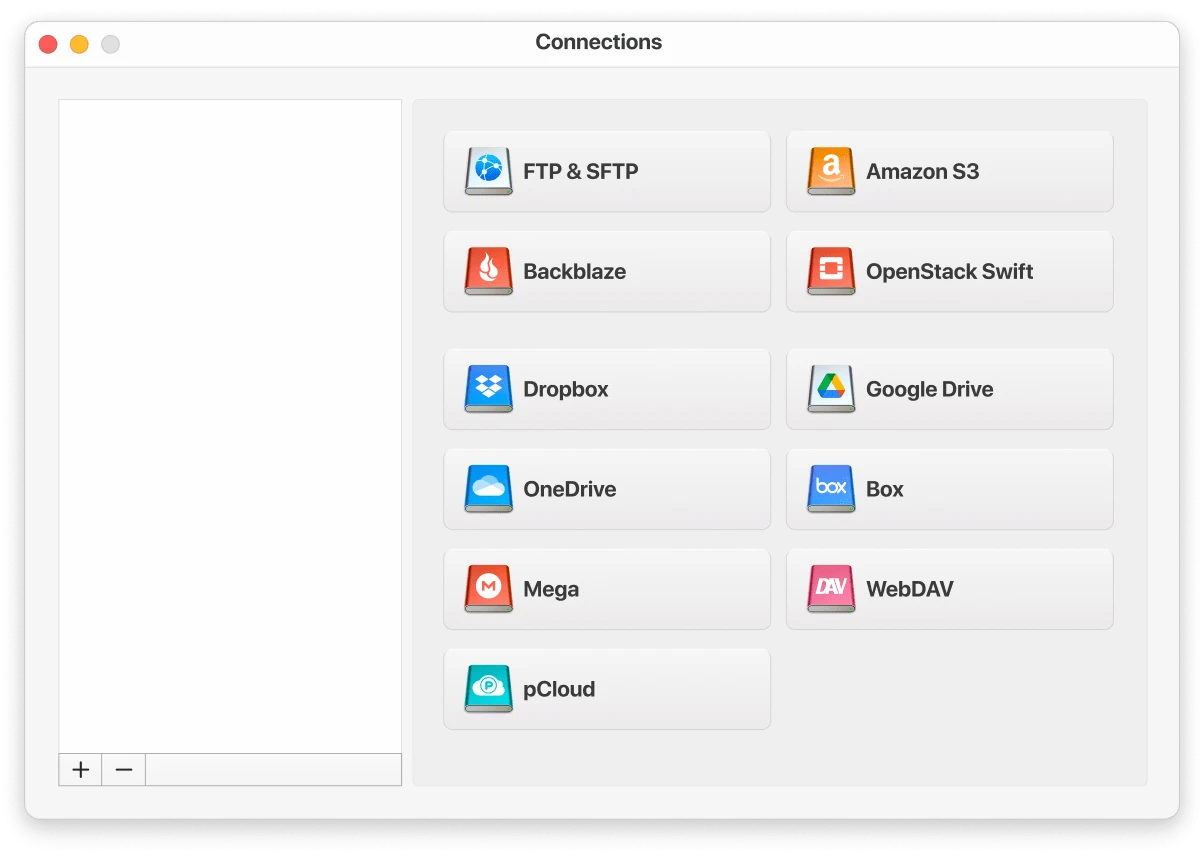Looking for ways to transfer your FTP files to Amazon S3 and vice versa? While there’s a manual method available, you can also use third-party tools.
A convenient option is to use a cloud storage manager like CloudMounter, which lets you access online files across multiple platforms. You can easily work with both FTP and Amazon S3 in Finder or File Explorer without needing to install extra apps like an FTP client or Amazon software.
Copy FTP files to Amazon S3
To manually transfer files from FTP to S3 bucket, you have first to download FTP files to your computer and then upload them to the AWS S3 bucket.
Here’s how it works:
- Connect to your FTP remote server through your file manager:
• In Finder, click Go > Connect to Server (or press ⌘K), then enter the server address and your credentials.
• In File Explorer, go to This PC > Add a network location, enter the FTP address, and log in. - Download the FTP files you want to move to your hard disk.
- Head to the Amazon S3 website and log in to your AWS account.
- Click on “Upload” and select the files you want to move to your S3 bucket.
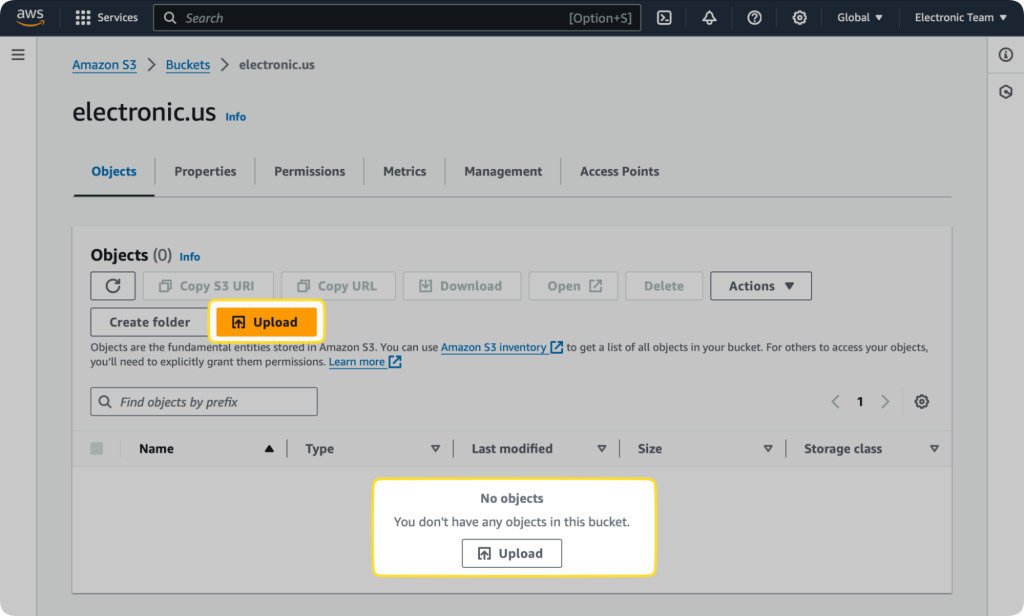
Move data from AWS S3 to FTP on Windows
To manually transfer a file from S3 to FTP server on Windows, download it from the S3 bucket to your PC, and then upload it to the FTP server. On macOS, Finder allows only viewing and downloading FTP files, so full transfers can only be done on Windows.
- Go to the AWS S3 website and log in to your account.
- Select the objects you want to move, click on “Download, and choose where you want the files to be saved on your local drive.
- Connect to the FTP server via File Explorer: This PC > Add a network location, type the FTP address, and log in.
- Move the files you selected from the local drive to your FTP server (i.e., the drive in File Explorer).
The problem with this method is that it can take quite a lot of time since you have to manually move folders and files back and forth. Plus, you also have to make sure there’s enough storage for the files you want to move to your local drive.
How to transfer from FTP to S3 bucket with CloudMounter
CloudMounter is a user-friendly cloud storage manager that lets you mount AWS S3 and FTP as network drives, making it easy to manage your data in one place. You do not need to be an S3 expert. Use it once, and you will see how simple it is to transfer files between FTP and S3 buckets.
Here’s how to use CloudMounter to transfer file from FTP server to AWS S3 bucket:
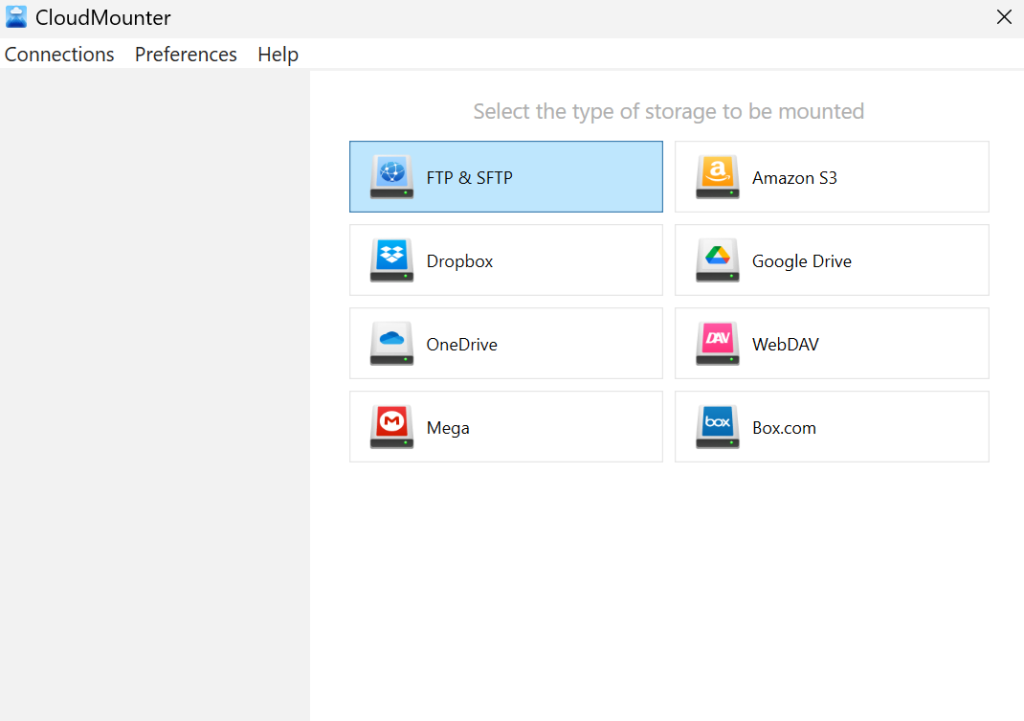
3. Type your FTP server login details in the required fields.

4. Enter your Amazon S3 details in the required fields. Instead of a username and password, use the access key and secret key from your Amazon account settings.
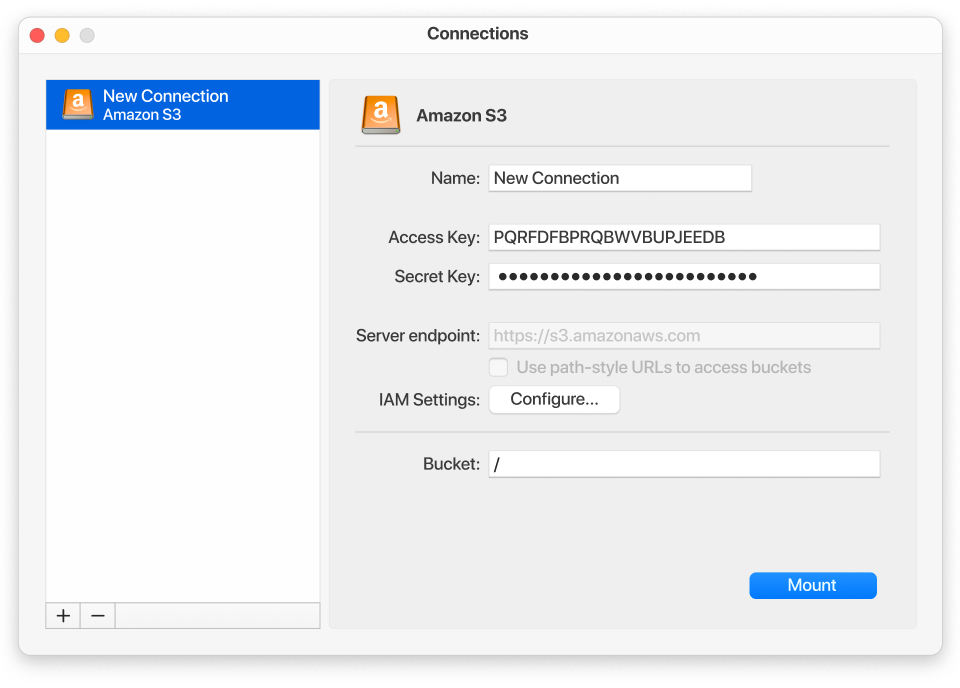
5. Click “Mount” to map the storage as a local drive on your computer. After that, you can view each storage directly in your file manager.
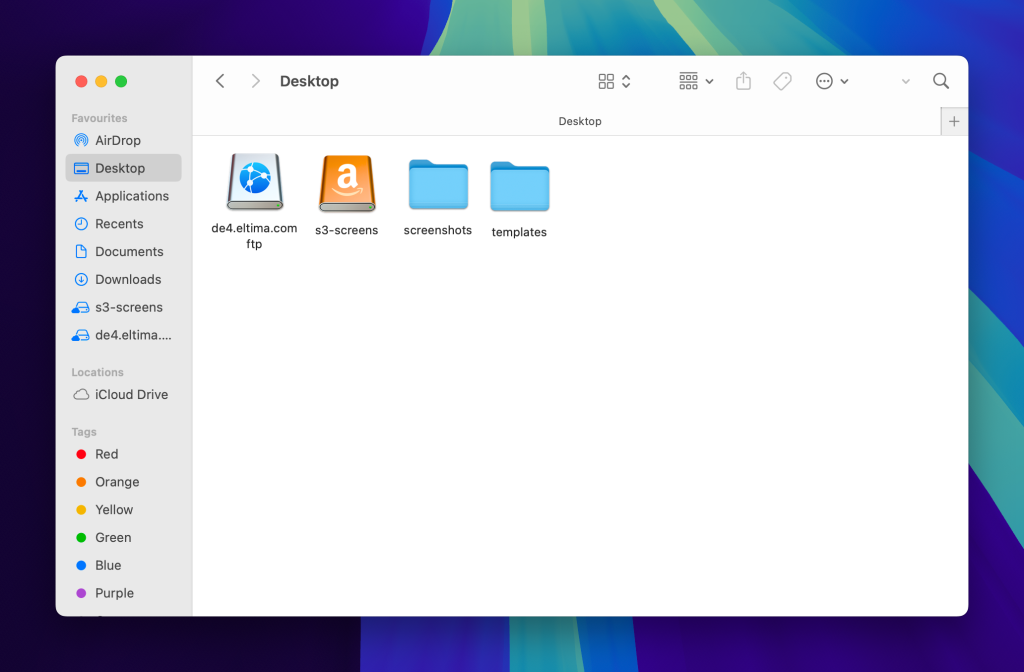

11 CloudMounter’s main benefits
Here are 11 benefits this cloud management tool offers:
- Broad compatibility. Easily works with all AWS regions and S3-compatible storage services.
- Compatible with various storage providers. Instead of picking between a remote server like FTP and AWS S3, IT professionals can use both at once. It also supports cloud platforms such as Dropbox, Google Drive, and OneDrive, along with remote servers through WebDAV, SFTP, FTPS, and FTPES protocols.
- Unified management and inter-storage transfer. CloudMounter lets you manage all your online storage in one place by connecting multiple services directly to your file manager, so you don’t have to juggle between apps or browser tabs.
- Improved system performance. The tool integrates directly with Finder or File Explorer, removing the need for multiple cloud apps that slow down your system. It provides a clean and quick way to access cloud storage.
- No local file duplication. Files are accessed directly from the cloud instead of being stored on your device, saving valuable disk space, which is perfect for users with limited storage.
- Work offline on macOS. You can still access and edit your files without an internet connection, so your work continues even when you are offline.
- Multiple storage accounts support. CloudMounter makes team collaboration easier by connecting shared drives from different cloud accounts, including both personal and business OneDrive accounts.
- Access your online files instantly, from anywhere. View and manage all your online files without syncing or downloading, and easily copy files and move them between different cloud storage accounts.
- Enhanced security and data privacy. CloudMounter uses AES 256-bit client-side encryption to protect your data. Only you can access your files with your unique decryption key, and passwords are safely stored in macOS Keychain or Windows Credential Manager.
- On-demand access saves local storage. Work with large files such as videos or 3D models without using up space on your local drive.
- Easy file sharing. You can set any mounted Amazon S3 bucket or its files as private or public through the context menu. Files can also be shared quickly by copying their HTTP link.
Conclusion
Manually transferring files from FTP to AWS and vice versa can be very time consuming. Fortunately, you can use CloudMounter to mount both the server and your AWS S3 bucket as local drives on your computer.
This makes it very easy to transfer data from one platform to another. They’re both mounted as local drives, so you can just drag and drop your files like you would with any local disk.

